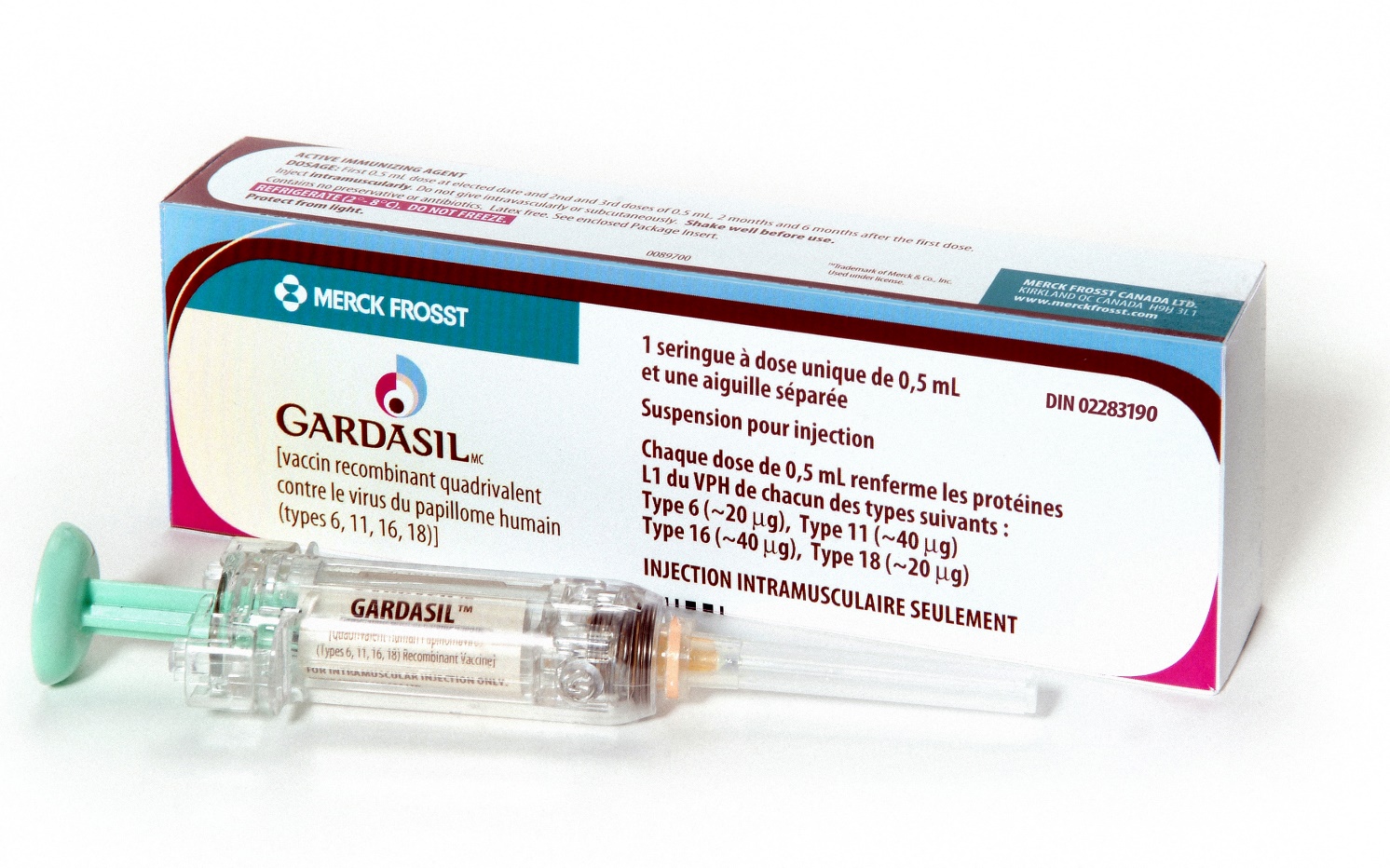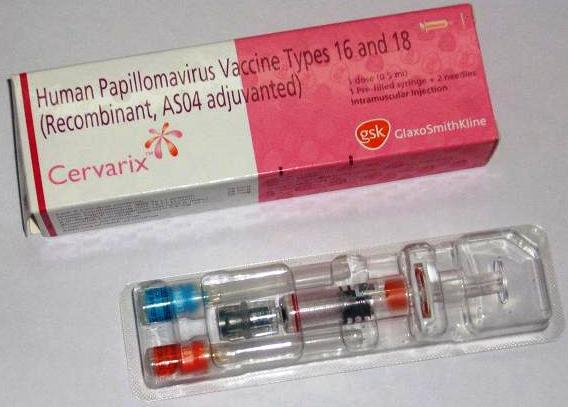Background
Gardasil and Cervarix are vaccines used against the spread of a sexually transmitted infection (STI) known as human pappiloma virus (HPV). This virus manipulates the DNA coding to present a modified signal during cell formation and hence varying resultant tissues. The Centre of Disease Control (CDC) informs that approximately 20 million people are infected by this virus in the United States of America (Centres for Disease Control and Prevention 2010). In this regard, such cases of diseases as genital warts and cervical cancer diagnosed in females and/or males respectively are caused by this deadly virus.
A research conducted by Kahn (2009) indicates that about 490000 instances of HPV infections are recorded annually throughout the globe, whereby 55% of these cases lead to death. Drawing from these outcomes, research and development have devised various strategic approaches to provide sustainable treatment plans through producing and controlling the use of drugs. The approvals of Gardasil and Cervarix in the year 2006 and 2009 respectively are some of the drugs availed to the market for prevention of the virus. However, Gardasil protects against four types of HPV (6, 11, 16, and 18) whereas Cervarix manages to cover type 16 and 18 only. The idea is that Gardasil provides further protection against genital warts caused by the HPV types 6 and 11 at a lower price (Einstein, Baron, & Levin 2009).
Counting from the fact that the health risk associated with the subject virus is too high, it is paramount to ensure the use of quality and high standards vaccines protecting the population from possible infection in the globe. The countries such as Australia have recorded 75% decrease prior to the use of Gardasil. On the other hand, the use of Cervarix for a similar period of time has seen no change on the cases of HPV infections in the UK (Schwarz 2009).
Primarily, Gardasil assumes to take have taken almost the entire roles of Cervarix even before the latter was approved. Consequently, there are various pertinent questions that sprout from this development regarding the cynical and logical terms of the latter release. For instance, it is quite essential to ask why a new and less viable drug was released in a market where a better drug covering more health problems at lower cost was available in the market. In reaction to this question, this evaluation analyses the two drugs in relation to their discovery and development, and discusses the essence in which they may be used.
Discovery
Gardasil
Like many other vaccines, Gardasil (figure 1) contains four treated strains of the HPV to trigger the immune response against infections caused by their active forms. The Cervical Intraepithelial Neoplasia (CIN) and Anal Intraepithelial Neoplasia (AIN) are known as the sources of cancerous infections of the cervix after their removal protected against cancer (McNeil 2006). Consequently, clinical studies were performed on males aged 16 to 26 years to measure the efficacy of this drug for penile/perineal/perianal infections from HPV anal cancer. The effectiveness was evaluated in 6 studies of phases two and three, which were Amorphous Aluminum Hydroxyphosphate Sulfate-controlled, doubled-blind and randomized setups (Lowy & Schiller 2006).
The 1st phase II assessment checked the type 16 strain component of the drug, whereas 2nd one assessed all its four strain compliments on the females. The study 3 and 4 assessed the same drug on sample sizes of 5442 and 12157 females respectively. Eventually, the study 5 on phase III involved 4055 males while the last study incorporated 3817 women at the age of 24 to 45 years (Harper 2009). All other participants of these studies were at the age of 16-26 years. Furthermore, the research included the factor of race as a variant in the study. The results indicated that an average of about 70% was not exposed to the HPV initially. The remaining percentage indicated a major prevalence of one strain type among the approximately 30%.
The drug was applied regardless of checking the availability of HPV infections. However, females with the prevailing and past infection from the virus strains were excluded from the drug efficacy test on the specified HPV type. The analyses of efficacy involving females who received the full dosage within 1 year showed that the drug could prevent against the 4 strains of HPV causing genital warts, AIS and CIN.

Cervarix
The CIN and AIS are the precursors of cervical cancers. The assessment of Cervarix (figure 2) involved a sample of 19778 females from 15 to 25 years of age (Schwarz 2009). The first study incorporated women without the HPV DNA of types 16 and 18 as approved from clinical samples. This approach approved that the testing samples did not have an established immune response against the HPV type 16 and 18. Furthermore, the study was subjected to a long-term examination of 6.4 years.
The second study did not limit the sample population on the presence of prevailing and prior HPV infections. However, samples were tested for the presence of oncogenic HPV DNA and the respective antibodies, especially in regard to the types 16 and 18 (Schwarz 2009). Cervarix lowered the cases of infection from CIN or AIS inconsiderate to the HPV DNA type present or absence in the sample population.

Development
In the field of therapy, the essence of research and development (R&D) is to derive new strategies that are better than the pre-existing ones in order to improve the prevailing medical techniques and results. The side effects like severe stomach ache, chest pain, fever, swollen glands, vomiting, dizziness, and diarrhoea among others have been recorded after the use of Gardasil (Harper, 2009). Similarly, Cervarix causes headache, fatigue, muscle pain, swelling on the point of injection, menstrual ache, coughing, and sore throat to the patient (Harper 2009). Therefore, the effects are apparent for the two vaccines.
According to Richwine (2009), Gardasil was released in 2006 to curb the prevalence of 4 HPV types whereas another drug catering for fewer health problems at a higher cost was allowed to compete 3 years later. However, researchers are investigating this area of therapy with an aim of discovering new strategies to improve the treatment against HPV (Brodnik 2010). Therefore, it is expected that drugs may be developed through research where discoveries are used to make the services substantial. Moreover, some discoveries require evaluation and review to establish new knowledge in this area.
In the protection against HPV, new drugs may be established in the treatment of HPV or other product in offering services to the people. The prevailing problems in the processes used in therapy will be solved through research. Research is a core in the development of therapy as a whole which assists in breaking down problems and finding data to prove the viability of outcomes. The discovery of better HPV vaccines can be no exception in this trend. Researchers can identify ideas through scientific assessment and apply research techniques to find the answers to these problems. In fact, the research can initiate further studies with or without discovering new knowledge in the therapy management through recommending advanced investigations.
Discussion
The world is being offered a vaccine that does not protect against genital warts without information on its credibility amongst the compliment drug. Therefore, the people conversant with the qualities of vaccines use Gardasil to treat their patients while those who are unaware continue to apply Cervarix (Einstein, Baron, & Levin 2009). An estimated funding for genital warts’ treatment requires 31 million sterling pounds apart from other medical attentions from human resources, which can be used elsewhere if Gardasil is considered.
Furthermore, complaints have been issued that the contract information of the drug are not apparent. The most typical aspects of the two vaccines are protection against HPV 16 and 18 as well as mild side effects. In essence, therapy management of HPV has been based on tests since its practical sense and implications are critical in the long run. However, the training programs for care management lack the depth on intellectual knowledge needed in providing proficient instructions (Brodnik 2010).
In the next ten years, this profession may undergo critical evolution in regard to practice so that trainers may have sufficient experience regarding the Gardasil vaccine. This can lead to the implementation of Gardasil as the standard vaccine for public healthcare services in order to curb more health problems in the future.
Conclusion
The development of therapy management is not only apparent in the modern world, but also shows the spirit of advancing in the future. Dhakal (2006) identified this anticipated improvement and based its establishment to the livelihood of people in the future. Essentially, the practical outcomes may be experiences of economic expansion due to improved medical services. These attributes may arise together with quality care services under a sustainable development in nations. In this regard, the quality, cost, information, accessibility, value, regulation, and education of the services may be better in the future than today.
References
Brodnik, M 2010, Care management, Aspen, Frederick.
Centers for Disease Control and Prevention 2010, “FDA licensure of quadrivalent human papillomavirus vaccine (HPV4, Gardasil) for use in males and guidance from the Advisory Committee on Immunization Practices (ACIP)”. Morbidity and mortality weekly report, vol. 59 no. 20, pp. 630-632
Dhakal, T 2006, NGOs in livelihood improvement: Nepalese experience, Adroit Publishers, New Delhi.
Einstein, M, Baron, M, & Levin M 2009, “Comparison of the immunogenicity and safety of Cervarix and Gardasil human papillomavirus (HPV) cervical cancer vaccines in healthy women aged 18-45 years”, Human Vaccination, vol. 5 no. 10, pp. 705-719.
Harper, D 2009, “Current prophylactic HPV vaccines and gynecologic premalignancies”, Current opinion in obstetrics & gynecology, vol. 21 no. 6, pp. 457-464.
Kahn J 2009, “HPV vaccination for the prevention of cervical intraepithelial neoplasia”, Journal of medicine, vol. 361 no. 3, pp. 271-278.
Lowy, D, & Schiller, J 2006, “Prophylactic human papillomavirus vaccines”, Journal Clinical Investigations, vol. 116 no. 5, pp. 1167-1173.
McNeil, C 2006, “Who invented the VLP cervical cancer vaccines”. Journal of National Cancer Institute, vol. 98 no. 7, pp. 433.
Richwine, L 2009, UPDATE 2-U.S. health officials back safety of Merck vaccine, Reuters, New York.
Schwarz, T 2009, “Clinical update of the AS04-Adjuvanted human Papillomavirus-16/18 cervical cancer vaccine, Cervarix”, Advances in Therapy, vol. 26 no. 11, pp. 983-998.